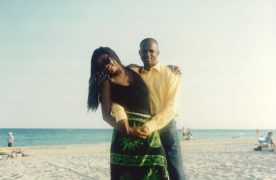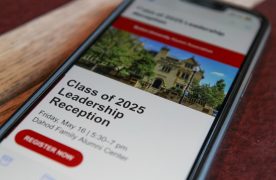When Dzhokhar Tsarnaev first entered the John Joseph Moakley United States Courthouse to stand trial for his role in the 2013 Boston Marathon bombings, there was no question that he belonged there.
“It was him,” defense attorney Judy Clarke said of her client.
The verdict thus came as no surprise. The 22-year-old former University of Massachusetts Dartmouth student was found guilty of 30 out of 30 counts, 17 of which carried a possible death penalty. On six, he received it.
With Tsarnaev’s sentencing, though, what might have been closure for a wounded city was only a line break. As they had promised in July, the defense returned to Moakley Courthouse Tuesday to request a new trial for their client.
While the first hearing dealt mainly with a recent Supreme Court decision that could alter whether certain charges still warrant capital punishment, the defense will most likely focus on the argument that the trial by impartial jury promised to Tsarnaev by the Sixth Amendment was not the trial he received.
Legally, it’s a compelling argument to follow. The 12 jurors and six alternates began as a list of over 1,300 names, each one of them questioned for their viability as the trial neared. WBUR chronicled U.S. District Judge George O’Toole’s difficulty finding even 18 individuals who could reliably presume innocence, calling the final roster “an achievement.” As snippets of jury selection interviews surfaced, it became clear why.
“I don’t think I could sway my judgment,” Juror 62 told the court. “It would take an awful, awful lot.” Asked on a questionnaire to rate his support for the death penalty from one to 10, he chose 10. Not a soul could blame him, though — when the bombs went off, his wife was at the Prudential Center, blocks away.
Many others felt similarly. The scope of Tsarnaev’s crimes, it seemed, coupled with the ubiquitous coverage that followed, left nary a soul in Suffolk County who had not been affected in some way by the bombings. It’s worth a mention that interviewing jurors, a process known as voir dire, is not the only means of averting pre-trial prejudice. After Timothy McVeigh killed 168 people in Oklahoma City, his trial was moved 700 miles west to Denver where the wound was not as fresh. O’Toole, though, denied repeated motions for a changed venue, and so the trial remained in Boston.
Even more, the jurors that did stand up to scrutiny still needed clearance to serve on what’s known as a “death-qualified” jury. Because Tsarnaev faced the death penalty, the law required the peers who tried him be free of any categorical biases for or against it. The argument here is that while the federal government employs the death penalty, the Commonwealth of Massachusetts does not, and because polls suggested that a majority of state residents (and even more Bostonians) favored life without parole over death for Tsarnaev, any jury selected would automatically represent a minority view.
These are the legal arguments. As residents of Boston ourselves, though, we’re inclined to consider a moral argument: Dzhokhar Tsarnaev violently ended four human lives and indelibly affected hundreds more. Especially now, as the world faces senseless loss on an increasingly frequent basis, it is not easy to look at Tsarnaev’s actions and not feel something sickening. Regardless of what we as individuals believe in, the co-perpetrator of the Boston Marathon bombings deserves to suffer, in this life or otherwise.
But the law does not answer to our wishes, regardless of how deep we hold them. True, a successful appeal is a faint possibility. According to Department of Justice statistics, under 6 percent of criminal appeals filed last year favored the convicted. Coupled with the widespread infamy of the bombings, the odds are that Tsarnaev’s counsel will be hard-pressed to find any American anywhere who hasn’t already judged their client.
And yet if we value the rule of law at all in this country, we have no choice but to let them try. As heart-rending as it feels to revisit, again, the events of April 2013, Dzhokhar Tsarnaev must be granted a second trial. As much as we want to see him stand before those whose lives he destroyed, he must be allowed to have another say somewhere the wound cuts less deep. Fairness and blind justice are not selective values — they are woven into the very fabric of our society in this country. To compromise on those morals is to see that fabric unravel, something monsters like Tsarnaev live to see realized.
After all, his guilt has never been contested. Justice will be served, whether he is sentenced to die or sentenced to live in prison until he dies. Even the parents of Martin Richard, the 8-year-old boy killed by the second bomb, have asked that the death penalty be dropped, not because they forgive their son’s killer, but because a life sentence means no more appeals. It’s something to consider as the process drags on and picks at our scars. We don’t care what happens to Dzhokhar Tsarnaev from here on. We just want to see him go away forever.
Editor’s Note: Certain members of the Editorial Board have participated in covering the ongoing appeal process. They did not participate in the discussion of the editorial in order to ensure impartial coverage.














you should speak for yourself and not everybody else because not every one believe that he is guilty we have not heard dzhokhar say he is guilty the only thing we have heard dzhokhar say is not guilty x7 well i guess not everyone heard it but as i was in the court room i heard it…and no not everyone wishes he go away alot of us wish that justice was served and he was released since he is innocent